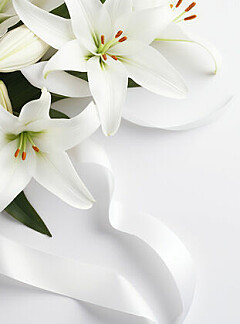You can help monarchs make their journey south
This morning our office has a few unique visitors: caterpillars. Voracious eaters, they are mostly ignoring us as we ooooh and ahhh over them and are intently devouring their milkweed, leaving behind a mountain of frass (caterpillar poo), which is an interesting indicator of their age.
When their droppings get large, it’s a sign they will soon start their pupa phase. They’ve come to us from my parents' home, where my dad allowed me to guilt him into saving a few patches of milkweed around the farm. This year the first butterfly weed plant I’ve ever seen around the Clear Fork Valley also was spared from the mower, and that’s where, for the first time in my life, I found monarch larvae in the wild.
These particular caterpillars are significant because the larvae we find this time of year are members of an elite flying squad nicknamed “The Super Generation.” They live eight times longer than the previous broods that have hatched throughout North America during summer.
As butterflies they will spend the next months flying south to their winter habitat west of Mexico City in the now-protected Monarch Butterfly Biosphere Reserve, a 138,000-acre World Heritage Site. The monarchs (or “mariposas monarcas” when they’re in Mexico) will live in high altitude forests of oak, pine and fir from October to March, like Florida’s snowbirds, and then begin the 3,000 mile trek back to the Eastern U.S. and Canada.
The key factor in this amazing feat is the availability of milkweed. There are many varieties of milkweed (www.Ascelpias sp.), and any of them can host the monarch. Adults can — and do — enjoy nectar from a variety of flowering plants, but the only plants where eggs are laid are on milkweed leaves.
When the caterpillar emerges, the only plant it can eat is milkweed. When milkweed is removed from a landscape, there are no alternatives where a butterfly can land and lay its eggs, continuing this remarkable cycle.
If we value the miraculous journey of the monarch, it’s on us to make sure there is suitable habitat left for them.
One group encouraging and assisting with habitat conservation is the Ohio Pollinator Habitat Initiative. Comprising a variety of agencies and businesses from the federal to local level, OPHI pushes for collecting milkweed seed pods to help start it in places where the plant has disappeared.
A major part of their work is in identifying suitable locations and partners to help establish plots and corridors for the monarchs' benefit. Following the great response from 2016’s pod collection, OPHI is again partnering with the SWCDs in all 88 Ohio counties.
There is a receptacle located at each office including here at the back door (from parking lot) of the Ag Service Center, 62 W. Clinton St., Millersburg, where milkweed pods can be left at any time between Sept. 1 and Oct. 31.
Some important things to remember:
Only use net or paper bags. Plastic bags will trap moisture, and the seeds will rot. Familiarize yourself with milkweed plants and only collect the pods for common milkweed. Similar species such as hemp dogbane or swamp milkweed are not wanted for this initiative. ID the bags with the date, county and township where they were collected. Only select pods that will open easily with a little pressure. Pods will need to be mostly dry or brown before they are ready. Do not collect immature pods.
The Department of Wildlife is coordinating the pickup and delivery to participating institutions within the Ohio Department of Corrections. Inmates at several facilities will spend the winter months processing the milkweed seeds, preparing seed trays and nurturing milkweed seedlings to be used in habitat creation across the state.
A portion of the seeds collected are returned to each SWCD to distribute locally. We currently have seeds from last year’s collection and later this fall will be a great time to prepare a location and plant the seeds for spring.
Holmes SWCD will be happy to provide more information about milkweed and monarchs. For anyone interested, call our office at 330-674-2811 ext. 3 or visit our website at www.holmesswcd.com.
















































